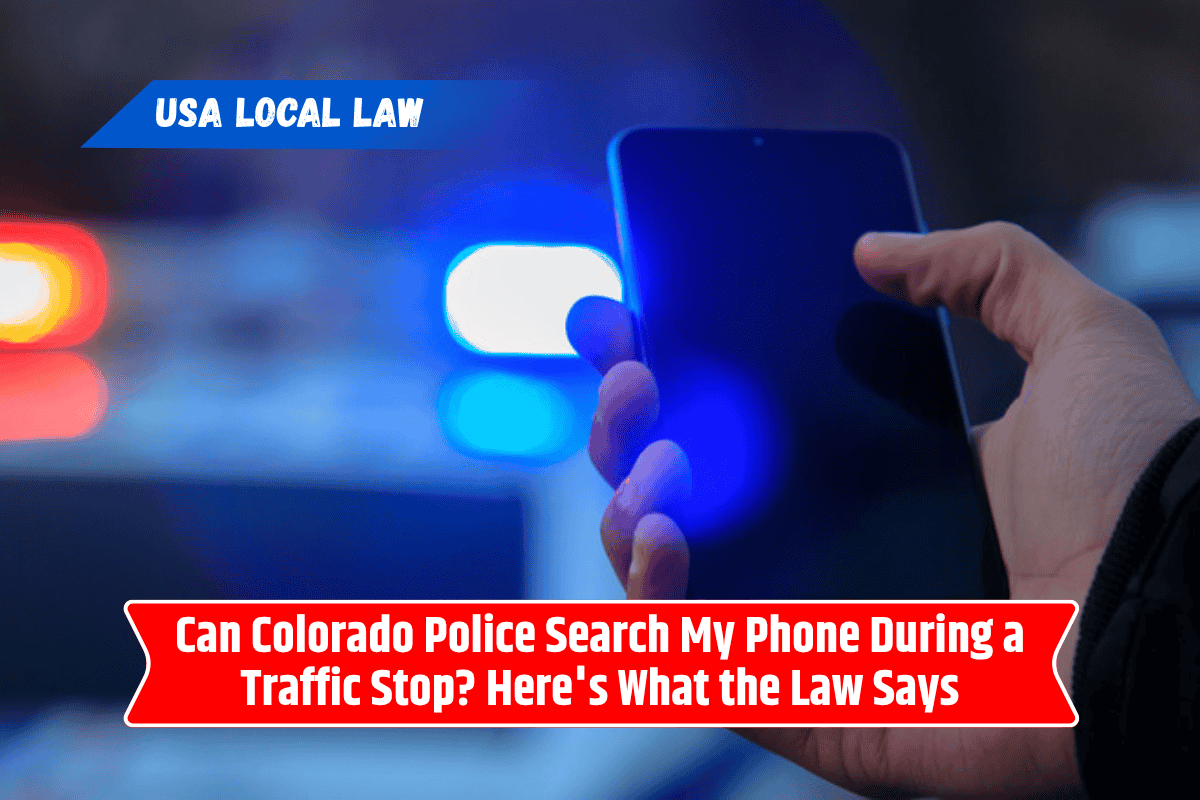In Colorado, the general rule is that police cannot search your phone during a traffic stop without your explicit consent or a warrant. Your phone is considered personal property, and the information stored on it is protected by privacy laws.
When Can Police Search Your Phone?
- Consent:
If you voluntarily agree to allow police to search your phone, they can do so. However, it’s important to note that consent must be given voluntarily. If you’re unsure, you have the right to refuse. Even after giving consent, you can withdraw it at any time during the stop. - Warrant:
Police can also search your phone if they obtain a warrant from a judge. The warrant must be based on probable cause, meaning the police need evidence that a crime has occurred and that your phone contains relevant evidence.
They cannot search your phone without a warrant unless there are exceptional circumstances. - Exigent Circumstances:
In rare cases, police may search your phone without a warrant if there are exigent circumstances (emergency situations).
For example, if there’s a pressing need to gather evidence to prevent harm or destruction of evidence, police might act without a warrant. However, this exception is very narrow and typically requires immediate action. - Search Incident to Arrest:
If you are arrested during the traffic stop, police may search your phone without a warrant as part of the search incident to arrest. However, this does not mean they have free reign to go through your entire phone.
Courts have ruled that searches of electronic devices must still respect privacy rights and cannot be excessively intrusive.
When Does Refusing Consent Matter?
If you refuse to allow police to search your phone, they cannot search it without a warrant or a valid exception to the warrant requirement. If they do search your phone without a warrant and without consent or exigent circumstances, any evidence they find could be excluded in court.
What If My Phone Is Searched Without a Warrant?
If law enforcement searches your phone without consent or a warrant and doesn’t have a legal exception to do so, the evidence obtained from that search may be inadmissible in court. You may also have legal recourse to challenge the unlawful search through your attorney.
In Colorado, police cannot search your phone during a traffic stop without your consent or a warrant. Your phone is protected by privacy laws, and police need either your permission or a court-approved warrant to access its contents. If you’re asked to consent to a search, remember that you have the right to say no.
